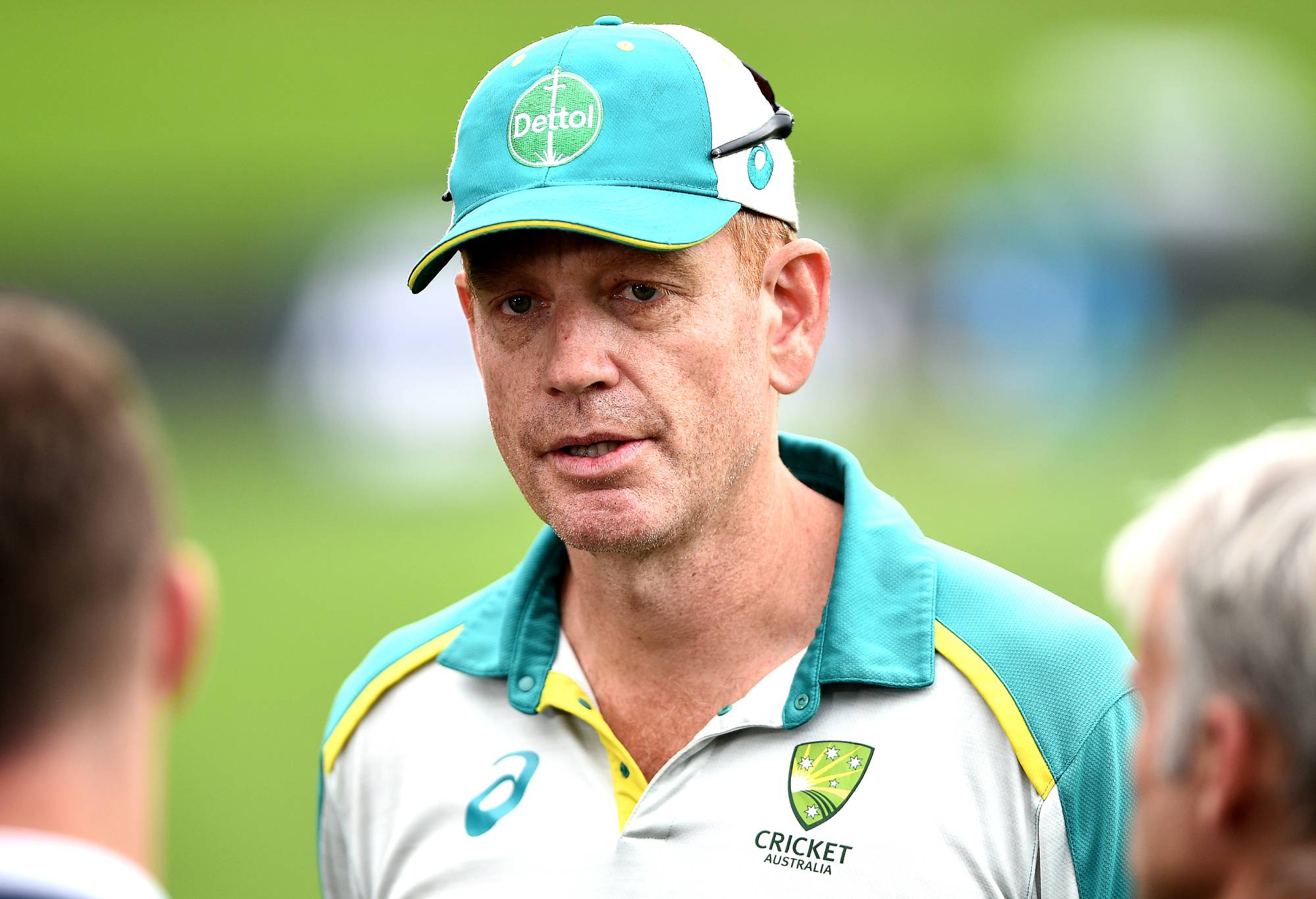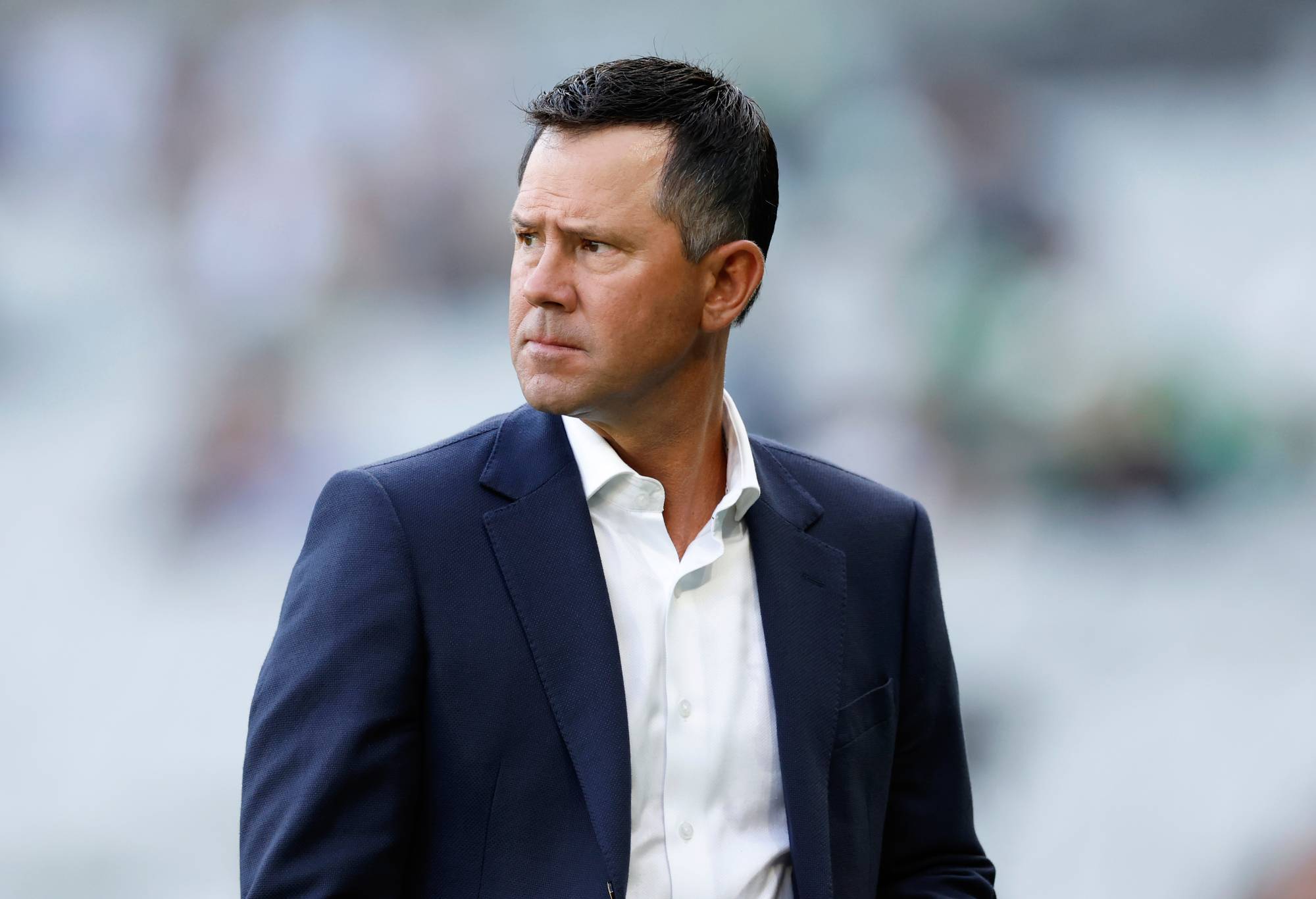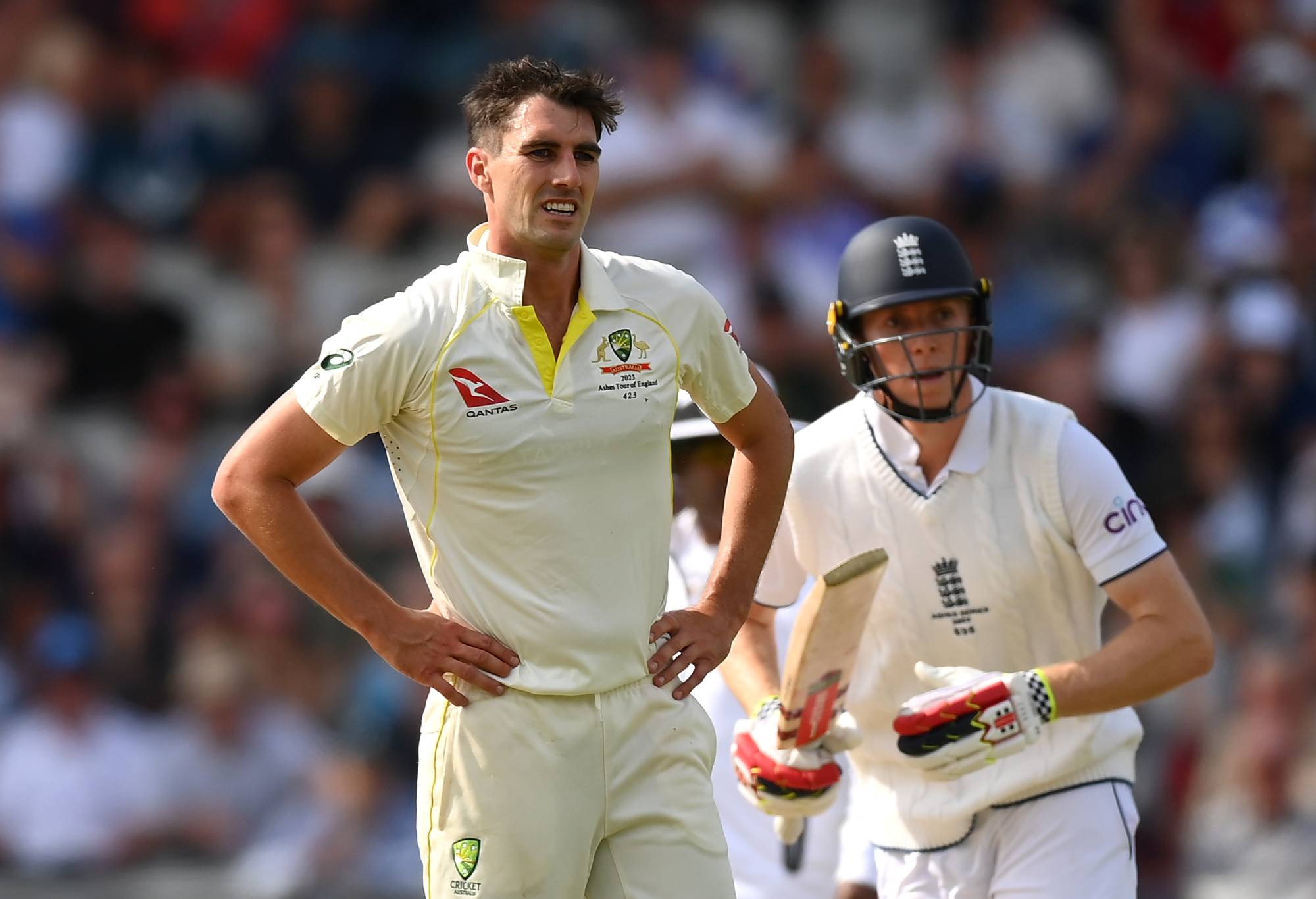Andrew McDonald has done a fine job in taking the Australian cricket team to the top of the Test tree but it’s hard to get over the lingering thought that the best option as coach can be found in the commentary box instead of in the dressing room.
Time and time again throughout the series, Ricky Ponting demonstrated that he has the sharpest of cricketing brains and is not afraid to call out the Australian men’s team when needed.
McDonald is filling his job description of improving the side in pursuit of all three world champion trophies – they wrapped up the Test title by beating India in June before the Ashes and will be one of the favourites for the ODI World Cup in India in October and next year’s T20 tournament in the US and Caribbean.
But it’s apparent that he was Cricket Australia’s best available option rather than necessarily being the ideal person for the role.
He is the coach the Australian players wanted but perhaps not the one they need for what should be a time of great transition in the next few years.

Andrew McDonald. (Photo by Joe Allison/Getty Images)
The Australian cricket team would be best served by having a more authoritative voice as the coaching director who is also on the selection panel with the 2IC running the day-to-day duties of the team at home and on tour.
It won’t happen anytime soon but if that was the set-up, Ponting would be the standout choice with McDonald being the hands-on presence at training and in the dressing room that the players can confide in without worrying about his dual role as a selector.
Ponting wouldn’t be afraid to make the tough calls if he was a selector but on the other hand, he wouldn’t throw caution to the wind by punting on unproven players either.
McDonald, selection chief George Bailey and third panel member Tony Dodemaide have frequently demonstrated a reluctance to punt an established player who is underperforming for a younger or less-experienced option.
In the age of rising player power, the question lingers about whether the selectors are worried about their positions if they make a tough call that gets them offside with the senior members of the team.
Justin Langer was fuming 18 months ago (and probably forever will be) to the point of resigning on the spot when he was given a slap in the face in the form of a six-month contract extension when Cricket Australia bowed to the wishes of the senior players by telling him that his time was coming to an end.
Manage, strategise & dominate. Download Wicket Cricket Manager today!
Ponting was never going to put his hand up to take over from Langer, mainly due to his close relationship with his former teammate and after heavily criticising Cricket Australia executives for the way they dawdled over making a decision in the lead-up to the coach’s abrupt exit, describing it as “almost embarrassing”.
“I think it’s a really sad day as far as Australian cricket is concerned. And if you look back, it’s been a really poor six months,” he said at the time.
The main impediment now to getting Ponting to take over as head coach is the lucrative deal he earns in the IPL.
He has been Delhi Capitals head coach since 2018 and despite a disappointing ninth-placed effort last season on the back of Risabh Pant’s absence due to his car crash injuries, Ponting has been retained for next year.
Being an IPL coach demands a lot more of a commitment than the two-year window when the matches are played but if Ponting was not needed on every Australian tour as head coach, it could be a workable arrangement.
The upcoming T20 and ODI trip to South Africa, which gets underway at the end of this month, is the kind of shorter tour with lesser significance that would not require a coaching director to be in attendance.
Several times during the Ashes, whether it was in regards to field placements, bowling plans or batting tactics, the TV viewers were seemingly receiving more prescient advice than the Australian players.
Some of the English commentators joked that they had to restrain Ponting from running onto the ground to tell the Australians what to do at various stages of a cliffhanger series which ended 2-2 but could have had a vastly different final scoreline if smarter tactics had been used by both sides.

Ricky Ponting. (Photo by Darrian Traynor/Getty Images)
If Ponting was in the touring party, he would have Pat Cummins fully prepared for all eventualities on the field so he wouldn’t have to captain by committee as much when the match is on the line or if he pulls the wrong rein, the message would get to him loud and clear during the next break in play.
Particularly once the Aussies have had their crack at the two big white-ball tournaments over the next 12 months, a seismic shift needs to happen to refresh their ageing squads in all three formats.
David Warner will be first out the retirement door in Test cricket but there are several other stalwarts like red-ball specialists Usman Khawaja and Nathan Lyon, short-form guns like Glenn Maxwell and Marcus Stoinis, who are entering the final stages of their careers.
Pat Cummins, Mitchell Starc and Josh Hazlewood will shorten their time in the international arena if they continue to commit to all three formats so they need to make tough decisions on scaling back their workload or be encouraged to do so.
Warner appears certain to yet again avoid a tap on the shoulder from the selectors despite being the least-effective batter of the 11 specialists used by either side in the five Ashes Tests – finishing with 285 runs at 28.5 with a top score of 66 in his final knock one of only two half-centuries.
He plans to farewell the Test arena at the end of the three-match series against Pakistan which starts in December, which could alternatively serve as the perfect launch pad for his successor, whether that’s Matt Renshaw, Marcus Harris, Cameron Bancroft or perhaps Will Pucovski if he can make a successful return at Sheffield Shield level.

Pat Cummins. (Photo by Alex Davidson/Getty Images)
“Dave was picked in the last Test match and the way he went about it after a certain period of time was outstanding,” McDonald told reporters at The Oval. “He’s always going to have some sort of speculation around what he’s doing and where he’s heading.
“But we’ve got a long time before that first Test match in Australia in Perth. We’re not in any rush to make any key decisions … for any format.”
They don’t have to be “in a rush” but the selectors can’t be in a state of inertia like they were last year when Aaron Finch was allowed to keep his spot in the ODI and T20 sides way too long despite an extended form slump.
Ponting was Australian captain during the last big transition when a team of legends retired in quick succession – Shane Warne, Glenn McGrath, Langer and Damien Martyn in the 2006-07 Ashes with the likes of Adam Gilchrist, Matthew Hayden, Jason Gillespie and Andrew Symonds also departing within a three-year timeframe.
As someone who conceded he played on himself too long, Ponting has both the knowledge and the real-life experience to know that what the ageing player thinks is their ideal plan is not going to be what’s best for the team.































































































